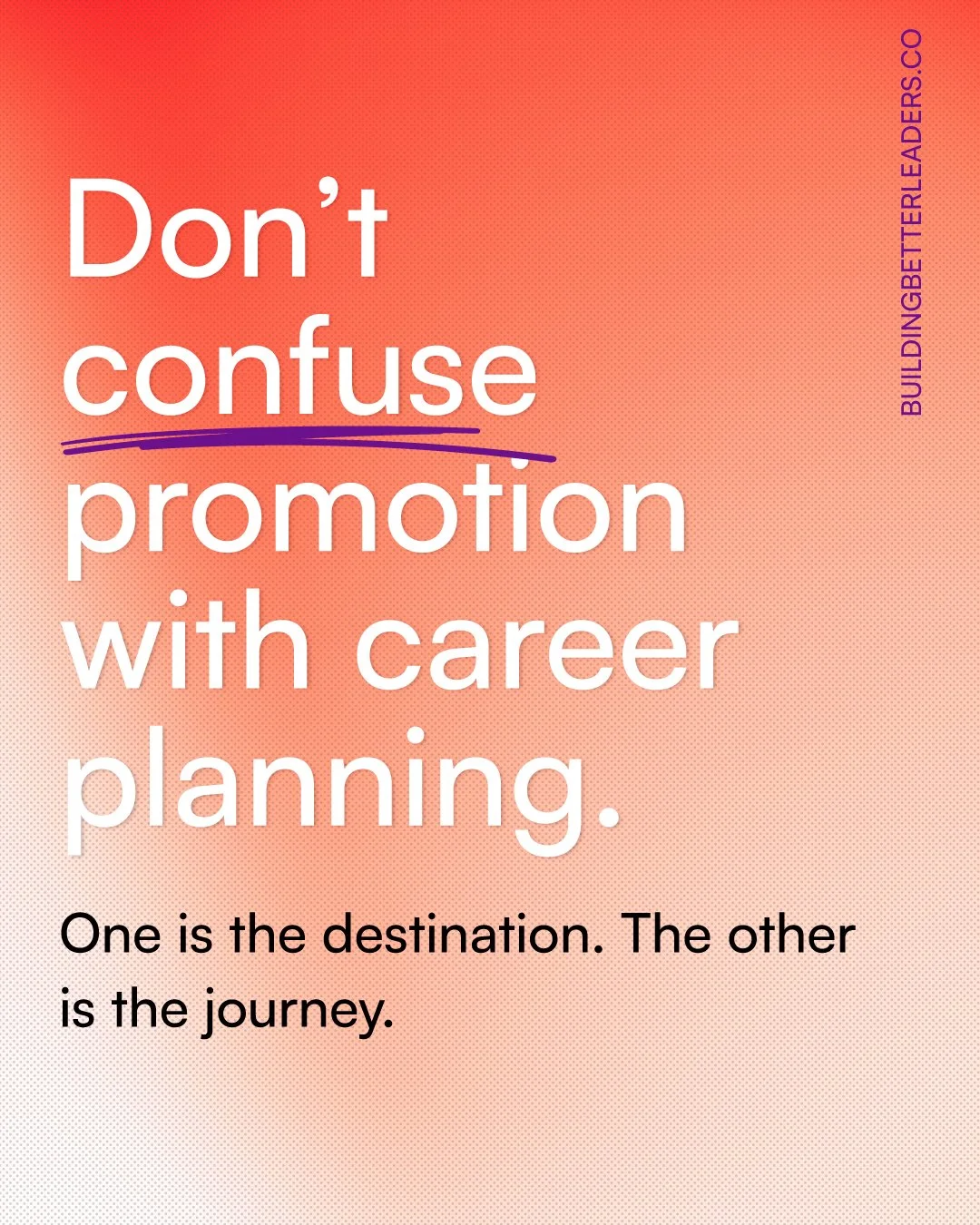Don’t mistake promotion with career planning.
Promotion is an outcome, not a plan.
Is your manager only talking about your career when it’s time for a promotion?
If so, that’s a problem. It’s a missed opportunity for real growth.
As managers yourself, the subject of career planning should be a continuous, intentional conversation between you and your team member. It’s about understanding their aspirations and mapping out their development pathways that will serve both the individual and the organization in the long run.
But in many workplaces, this doesn't happen.
When managers skip regular career conversations, they inadvertently send a damaging message: "Your growth is not something we proactively invest in." Instead, the only time career-related conversations happen is at the announcement of a promotion — or the disappointing news that there isn’t one.
Let us be clear: A PROMOTION IS AN OUTCOME, NOT A PLAN. It’s like treating graduation day as the entire purpose of school, without bothering about the years of learning, guidance, and preparation that lead up to it.
When organizations do not have a system to intentionally invest in career planning for their staff, this not only demotivates good people but also causes them to seek growth elsewhere, often in competitors that do invest in career conversations beyond the promotion cycle.
So, how can managers create this? Well, it’s not complicated. They just got to take the time in their regular one-on-ones (we sincerely hope you have regular one-on-ones) to ask questions like these and take action on it:
What career goals are you working toward? By when?
What kinds of projects excite you?
What skills do you think you would need to build to get to where you want to be?
How can I support your development?
A thriving career is shaped over time through small, meaningful steps, not sudden grand gestures like a promotion announcement.
Promotion is the destination; career planning is the journey. Let’s not confuse the two.

